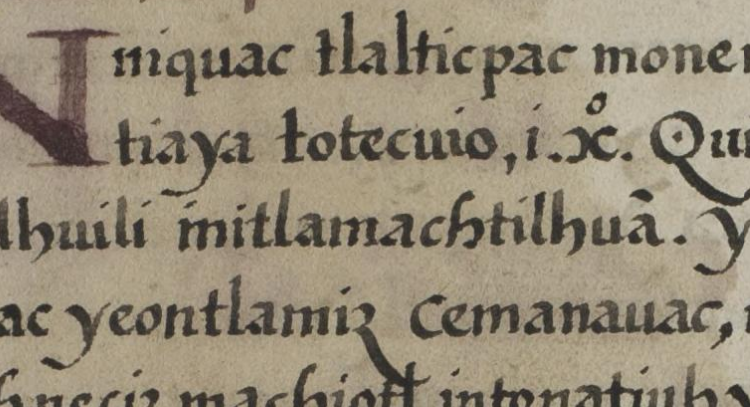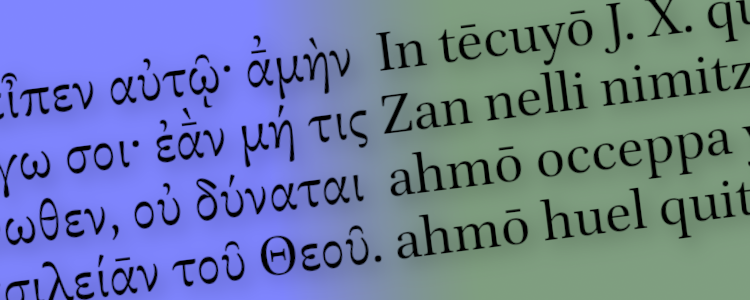Since the first time I heard the Nahuatl language spoken in a country church in San Luis Potosi, Mexico when I was a teenager, I have been fascinated by this language. Despite all odds, Nahuatl has held its own for over 500 years since the Spanish conquest, and continues to be spoken in many parts of Mexico to this day.
In modern times, American missionaries have translated the New Testament (as well as the Old Testament in a handful of cases) into a number of modern dialects of Nahuatl. However, until up to a few years ago, I was unaware that the Scriptures had already been translated into Nahuatl centuries before, during a time when the Catholic Church was a bit more tolerant towards native languages than it later became.
This translation is known as the Evangeliarium, and it was compiled in the mid 16th century. It is worth mentioning that it is not a complete translation of the Bible—in fact, it could be more accurately described as a lectionary, a book containing readings of Scripture organised according to the liturgical calendar. I don’t know whether or not the Nahuatl Evangeliarium was actually used in Catholic mass in times past, but that was clearly its original purpose. It is attributed to Bernardino de Sahagún, a Franciscan friar who took a great interest in Aztec language and culture, although it is very likely that he worked with a number of Nahuatl speakers to produce this book.
Despite the fact that the Evangeliarium does not contain the complete Bible, the more I looked at it the more I thought it would be worthwhile to reorganise the scriptures into books, chapters, and verses as in conventional Bibles. I took an edited version of the Evangeliarium which was published in 1858, and over the span of almost a year (15 minutes a day!) I copied, pasted, and proof-read the text verse-by-verse using Google Books and Archive.org. I used the Bibledit software to compile the text, and I am happy to report that the final result may be browsed and searched at this website:
Read More

 Looking back on my growing up years, I don’t recall any time in particular when someone told me it was disrespectful to wear a hat in the house. Maybe I just noticed it from others, or heard other people talking about it. Or maybe it was from mere utilitarian motives: In my mind, the purpose of a hat is to keep sun or rain off your head, and when you’re indoors, this protection is no longer necessary. But regardless, traditionally a man is considered disrespectful if he wears his hat indoors (ladies can keep them on, because theirs are mainly decorative).
Looking back on my growing up years, I don’t recall any time in particular when someone told me it was disrespectful to wear a hat in the house. Maybe I just noticed it from others, or heard other people talking about it. Or maybe it was from mere utilitarian motives: In my mind, the purpose of a hat is to keep sun or rain off your head, and when you’re indoors, this protection is no longer necessary. But regardless, traditionally a man is considered disrespectful if he wears his hat indoors (ladies can keep them on, because theirs are mainly decorative).